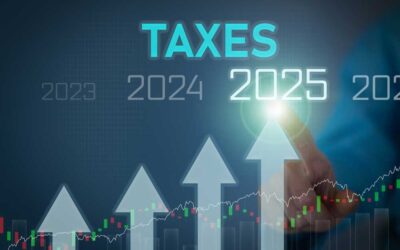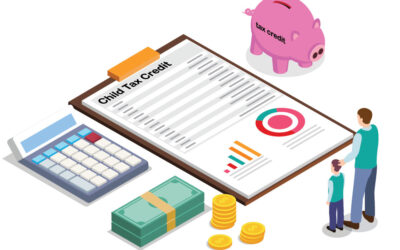Financial Terrain of Freelancing
The financial landscape of freelancers is as varied as the individuals who choose this career path. Unlike traditional employees, freelancers face a unique set of financial challenges and opportunities. The freedom to choose projects, set rates, and work at one’s own pace comes with the responsibility of managing personal finances and taxes.
Freelancers are essentially their own businesses. They are responsible for generating income, managing expenses, and ensuring that their financial health remains robust. This entrepreneurial aspect of freelancing can be both exhilarating and daunting. On the one hand, the potential for financial growth can be significant. On the other hand, the unpredictability of income and the complexity of managing finances can be overwhelming.
One of the most significant challenges freelancers face is the irregularity of income. Unlike salaried employees who receive a steady paycheck, freelancers’ income can fluctuate wildly from month to month. This variability can make budgeting and financial planning more complex. It requires freelancers to be adept at managing their cash flow, ensuring they have enough to cover their expenses during lean periods.
Another unique aspect of the freelancer’s financial landscape is the need to manage taxes independently. While traditional employees have their taxes automatically deducted from their paychecks, freelancers are responsible for calculating and paying their own taxes. This process can be complex and time-consuming, requiring a good understanding of tax laws and regulations.
Despite these challenges, freelancing also presents numerous financial opportunities. The ability to set one’s own rates means that high-performing freelancers can potentially earn more than they would in traditional employment. Furthermore, freelancers often have more opportunities to deduct business expenses, which can significantly reduce their taxable income.
To navigate this complex financial terrain, freelancers need to arm themselves with knowledge and develop sound financial strategies. The following sections will delve deeper into these strategies, providing freelancers with the tools they need to manage their finances and taxes effectively.
Here are some tips for freelancers to manage their finances effectively:
- Create a budget and track your spending.
- Set aside money for taxes.
- Invest for the future.
- Protect yourself with insurance.
- Get professional help when needed.
Freelancers, Meet Your Tax Responsibilities
In the realm of freelancing, understanding tax obligations is a critical part of the journey. Unlike traditional employees, freelancers are considered self-employed, which means they shoulder the responsibility of calculating and paying their own taxes. This can be a daunting task, especially for those new to the freelancing world, but with the right knowledge and tools, it can be managed effectively.
Freelancers are subject to several types of taxes, the most significant being income tax and self-employment tax. Income tax is based on the freelancer’s net income, which is their gross income minus allowable deductions. The rate at which freelancers are taxed depends on their income level and filing status, just like traditional employees.
Self-employment tax, on the other hand, is unique to freelancers and other self-employed individuals. This tax comprises Social Security and Medicare taxes, which are typically split between employees and employers in traditional employment. However, as freelancers are both the employer and the employee, they are responsible for the entire amount. The current self-employment tax rate is 15.3%, with 12.4% going towards Social Security and 2.9% towards Medicare.
Another key aspect of tax responsibilities for freelancers is the payment schedule. Unlike traditional employees who have taxes withheld from each paycheck, freelancers are required to pay estimated taxes on a quarterly basis. These payments are due in April, June, September, and January, and are based on the freelancer’s estimated income for the year. If these payments are not made on time, freelancers may face penalties from the IRS.
While this may seem overwhelming, there are resources available to help freelancers navigate their tax obligations. Tax software can automate much of the calculation and filing process, and hiring a tax professional can provide personalized guidance. Additionally, the IRS provides a wealth of information on their website, including forms, schedules, and publications specifically designed for self-employed individuals.
Understanding and managing tax obligations is a crucial part of financial planning for freelancers. By staying informed and proactive, freelancers can avoid tax surprises and keep their financial journey on track. The next sections will delve into more specific strategies freelancers can use to manage their taxes and finances effectively.
The Importance of Keeping Records in Freelancing
In the world of freelancing, accurate record-keeping is not merely a good practice, but a necessity. The ability to track income, expenses, and other financial details is a cornerstone of effective financial management and tax planning. It is the compass that guides freelancers through the complex terrain of self-employment taxes and deductions.
Freelancers receive income from various sources, and each payment must be meticulously recorded. This includes the date, amount, source, and purpose of the payment. These records form the basis for calculating taxable income and can be invaluable in the event of an audit.
On the other side of the ledger are expenses. Freelancers can deduct a wide range of business expenses from their taxable income, reducing their overall tax liability. These can include direct costs like materials and supplies, as well as indirect costs like a home office or business-related travel. However, to claim these deductions, freelancers must have clear, accurate records of each expense. This includes receipts, invoices, and other documentation that shows the amount, date, and business purpose of the expense.
In addition to income and expenses, freelancers should also keep track of other financial details related to their business. This can include contracts, client correspondence, and records of estimated tax payments. These documents can provide valuable context and support for the income and expense records.
While this may seem like a lot of paperwork, there are tools and strategies that can make the process easier. Digital tools like expense tracking apps and cloud-based accounting software can automate much of the record-keeping process. Even simple strategies, like using a dedicated business bank account and credit card, can help keep business finances separate and organized.
Record keeping is more than just a chore or a regulatory requirement. It is a powerful tool that can help freelancers understand their business, make informed decisions, and plan for the future. By keeping accurate, detailed records, freelancers can take control of their financial journey and navigate the world of self-employment with confidence. The following sections will delve into more specific strategies for managing taxes and finances in the world of freelancing.
Tax Deductions for Freelancers
Freelancers can save a lot of money on taxes by deducting their business expenses. To do this, they need to understand what expenses are deductible and how to claim them properly.
Some common deductible expenses include:
- The cost of materials and supplies used in the business, such as office supplies, software, and tools.
- The cost of a home office, if it is used exclusively for business purposes.
- Travel expenses, such as airfare, hotels, and car rentals, incurred while traveling for business.
- Professional fees, such as accounting and legal fees, incurred in connection with the business.
- Insurance premiums, such as liability insurance and health insurance, that are required for the business.
- Depreciation of equipment, such as computers and cars, used in the business.
Freelancers need to keep detailed records of their expenses to support their deductions. They should also be aware of the limitations on certain deductions, such as the home office deduction.
Claiming tax deductions is an important part of financial planning for freelancers. By understanding the rules and keeping good records, freelancers can save money on taxes and keep more of their hard-earned income.
Here are some additional tips for freelancers who want to maximize their tax deductions:
- Keep track of all of your business expenses, even small ones.
- Use a business credit card to make purchases for your business. This will help you keep track of your expenses and make it easier to file your taxes.
- Keep receipts for all of your business expenses. This will be required if you are audited by the IRS.
- File your taxes on time and pay your taxes in full. This will help you avoid any penalties or interest charges.
- If you are unsure about whether an expense is deductible, consult with a tax professional.
Charting the Course for Freelancers’ Retirement Planning
Retirement planning is a crucial part of financial planning, and for freelancers, it carries its own unique set of considerations. Unlike traditional employees who may have access to employer-sponsored retirement plans, freelancers are in the driver’s seat when it comes to planning and funding their retirement.
One of the most popular retirement savings options for freelancers is the Simplified Employee Pension (SEP) Individual Retirement Account (IRA). A SEP IRA allows freelancers to contribute a significant portion of their income towards their retirement, with contributions being tax-deductible. The contribution limit for a SEP IRA is considerably higher than that of a traditional or Roth IRA, making it an attractive option for freelancers looking to save a substantial amount for retirement.
Another option is the Solo 401(k), also known as a one-participant 401(k) plan. This plan allows freelancers to make contributions as both the employee and employer, potentially allowing for higher contributions than a SEP IRA. Contributions to a Solo 401(k) are also tax-deductible, and the plan offers a Roth option, which allows for tax-free withdrawals in retirement.
Freelancers may also consider a SIMPLE (Savings Incentive Match Plan for Employees) IRA. This plan allows for both employer and employee contributions, with lower limits than a SEP IRA or Solo 401(k). However, it can be a good option for freelancers with lower incomes or those who want a simpler retirement plan.
Each of these retirement savings options has its own set of rules, benefits, and considerations. Factors such as the freelancer’s income, tax situation, and retirement goals will influence which plan is the best fit. It’s also important to note that freelancers can contribute to a traditional or Roth IRA in addition to these plans, providing another avenue for retirement savings.
Retirement planning is a long-term journey, and the path can be complex. However, by understanding the options and making informed decisions, freelancers can chart a course towards a secure and comfortable retirement.
Navigating the Healthcare Labyrinth as a Freelancer
Freelancers must secure their own health insurance, which can be expensive. They can deduct premiums and other medical expenses on their taxes. By understanding their options, freelancers can navigate the healthcare labyrinth and ensure they are both physically and financially healthy.
Quarterly Taxes, the Freelancer’s Rite of Passage
The concept of quarterly taxes can be confusing and daunting for freelancers, who are not used to paying taxes on their own. Unlike traditional employees, who have taxes withheld from their paychecks, freelancers are responsible for estimating and paying their own taxes on a quarterly basis.
The Internal Revenue Service (IRS) requires freelancers to pay estimated taxes on their income four times a year: in April, June, September, and January. These payments include both income tax and self-employment tax.
The amount of estimated tax a freelancer needs to pay is based on their expected adjusted gross income, taxable income, deductions, and credits for the year. It is essentially a prediction of what the freelancer’s tax liability will be. If a freelancer overestimates their tax liability, they will receive a refund when they file their annual tax return. If they underestimate, they may owe additional tax and potentially face penalties.
Calculating estimated taxes requires a good understanding of one’s income and expenses. Freelancers need to track their income and expenses carefully throughout the year, and adjust their estimated tax payments as necessary. If a freelancer has a particularly successful quarter, for example, they may need to increase their estimated tax payment to avoid underpaying.
While paying taxes quarterly may seem like a burden, it can actually be beneficial. It allows freelancers to spread their tax payments throughout the year, rather than facing a large tax bill in April. It also encourages regular financial review and planning, which can help freelancers manage their cash flow and make informed business decisions.
Paying quarterly taxes is a rite of passage for freelancers, marking their full transition into the world of self-employment. By understanding and embracing this process, freelancers can ensure they stay in good standing with the IRS and maintain control over their financial journey.
The Pros and Cons of Hiring a Tax Professional
The world of freelance taxes can be complex and time-consuming, so hiring a tax professional can be helpful. However, there are pros and cons to consider.
On the plus side, tax professionals have expertise and experience in tax laws, deductions, and credits. They can help freelancers navigate these complexities and ensure they take advantage of all available tax benefits. This can save freelancers a significant amount of money.
Tax professionals can also save freelancers time. Instead of spending hours trying to understand tax laws and fill out forms, freelancers can focus on their work. This can lead to increased productivity and income.
Additionally, tax professionals can provide peace of mind. They can handle correspondence with the IRS, assist with audits, and provide advice on tax planning and strategy. This can reduce stress and uncertainty, especially during tax season.
However, there are also some drawbacks to hiring a tax professional. The most obvious one is the cost. Tax professionals can be expensive, and freelancers need to weigh this cost against the potential tax savings and time saved.
Additionally, not all tax professionals are created equal. The quality of service can vary widely, so it’s important for freelancers to do their research and choose a professional who is reputable and experienced in freelance taxes.
Finally, even with a tax professional, freelancers still need to keep accurate and detailed financial records. The tax professional can only work with the information provided to them, and garbage in equals garbage out.
Ultimately, the decision of whether or not to hire a tax professional is a personal one. Freelancers should weigh the pros and cons carefully before making a decision.
Beyond Taxes – The Bigger Picture of Financial Planning for Freelancers
While managing taxes is a significant part of a freelancer’s financial journey, it is essential to remember that it is just one piece of a larger puzzle. Holistic financial planning goes beyond taxes and encompasses all aspects of a freelancer’s financial life, including budgeting, saving, investing, and planning for the future.
Budgeting is the foundation of financial planning. For freelancers, this can be particularly challenging due to the irregularity of income. However, with careful planning and discipline, freelancers can create a budget that accommodates their fluctuating income and covers their expenses. This may involve setting aside money during high-income months to cover expenses during leaner periods.
Saving is another crucial aspect of financial planning. Freelancers should aim to build an emergency fund that can cover at least three to six months’ worth of living expenses. This can provide a financial buffer during periods of low income or unexpected expenses.
Investing is the key to growing wealth over the long term. Freelancers have a range of options available to them, from retirement accounts like SEP IRAs and Solo 401(k)s to taxable brokerage accounts. The right mix of investments will depend on the freelancer’s financial goals, risk tolerance, and time horizon.
Planning for the future is an often overlooked but vital part of financial planning. This may involve setting financial goals, planning for retirement, and considering insurance needs. Freelancers may also want to consider estate planning, including creating a will and designating beneficiaries for their accounts.
Financial planning is a dynamic, ongoing process. As freelancers’ income, expenses, and life circumstances change, so too should their financial plan. Regular financial check-ups can help freelancers stay on track and adjust their plan as needed.




